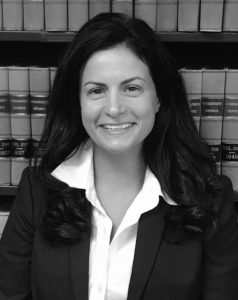Bringing Legal Skills to the Liability Adjustment Team
A Note from Debby Ward, Liability Adjuster
In September 2019, after having practiced personal injury law for over 15 years, I joined the Liability Adjustment Claims team at Friedline & Carter Adjustment, LLC. Over the course of my legal career, I worked with numerous insurance adjusters, and I learned how important the role of the insurance adjuster, specifically, the field or independent adjuster, is in terms of resolving a claim.
To gain a greater understanding of the facts that establish the outcome of a claim, an independent adjuster conducts a thorough and unbiased investigation. In addition to interviewing insureds, claimants, and witnesses and performing specialized services such as scar evaluations, an independent adjuster also secures the necessary documents needed to assess the claim. Acquiring these documents often involves obtaining public records, reviewing medical records and bills, and consulting with other experts. The goal of this careful, impartial procedure is a fair and equitable outcome for all parties involved.
With an interest in the field adjuster’s role in liability claims, I transitioned out of practicing personal injury law and into the independent insurance adjusting industry. Friedline & Carter’s Vice President of Liability Claims, Pauline Skiver, is extremely experienced and highly respected within the adjusting field. Under her supervision, I have been able to apply the skills acquired during the course of my legal career to help our clients involved in the liability claims process.
Recently, for instance, a claim was brought against our insured—a landlord—when a tenant’s dog escaped from the insured premises and caused injury to a claimant off the insured premises. I was able to draw on my legal research skills, along with my knowledge of case law, to ensure the swift resolution of the claim.
I identified recent, relevant case law, Creatini v. McHugh, decided on January 27, 2021, in the Massachusetts Appeals Court. The finding states that a landowner does not have a legal duty to protect passers-by from a dog owned by a tenant and kept on the landowner’s property unless an attack is a foreseeable event that warrants the imposition of a duty upon the landlord. The case law I provided to our principal led to a swift resolution. The dog in this claim had no prior history of violence, and the incident occurred on a public road and not on the insured premises. As a result, I was able to determine that our insured therefore did not have a legal duty to protect the claimant.
Connect with Debby:
508‐771‐3232 Ext. 246
debby.w@friedlineandcarter.com

